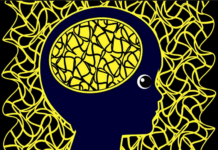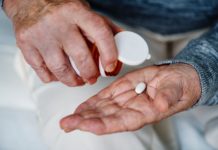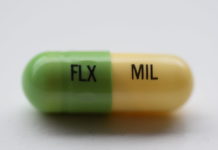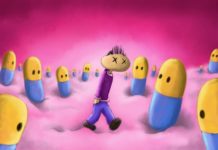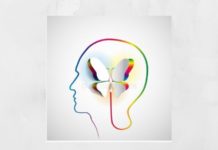Psychotherapy Less Effective for People in Poverty and Those on Antidepressants
A new study finds poorer depression and anxiety outcomes in psychotherapy for people in economically deprived neighborhoods and those on antidepressants.
Increased Antidepressant Use Does Not Decrease Depression Prevalence in Older Adults
The use of antidepressants has risen quickly among older adults but the rate of depressive symptoms in this population has not declined as a result.
Fear and Belief in “Chemical Imbalance” Prevent People from Coming Off Antidepressants
Researchers interviewed people who were given medical advice to discontinue antidepressants.
Training Health Workers in Therapy Leads to Improvements and Less Medication Use
A Nigerian study finds that more than three-quarters of patients improved, even when only 13% were prescribed medication.
Textbooks Provide Misleading Information on the Neurobiology of ADHD
When it comes to ADHD, some researchers suggest that medical textbooks provide inaccurate and misleading information.
Fluoxetine Not Helpful for Children with Autism
A clinical trial finds Prozac no better than placebo for improving repetitive behaviors.
Relapse in Antipsychotic Drug Trials is Poorly Defined
There is a lack of consensus in the definition of ‘relapse’ across randomized controlled trials of antipsychotic maintenance treatment for schizophrenia and psychosis.
Researchers Challenge Evidence for Antidepressants in Youth
Researchers shed light on the precarious nature of evidence from efficacy trials of antidepressant medication to treat symptoms of major depressive disorder in children and adolescents.
People Diagnosed with Bipolar Disorder at Increased Risk for Parkinson’s
Increased Parkinson's risk could be related to lithium, antipsychotic, and antiepileptic drug use.
NICE Guideline Update Acknowledges Severe Antidepressant Withdrawal
A new update to the NICE guideline for depression suggests providers discuss long-term, severe antidepressant withdrawal symptoms.
“Flimsy Evidence” for Esketamine as Depression Treatment
A new article documents the “flimsy evidence” behind the recent FDA approval of the party drug esketamine for the treatment of depression.
Study: Antidepressants Linked to Higher Gestational Diabetes Risk
From CNN: “Taking antidepressants while pregnant may be associated with an increased risk of gestational diabetes, a new study suggests.
It turned out that the...
Clinical Trials Show Antidepressants “Not Beneficial in the Long Term”
Clinical trials also consistently fail to measure and report long-term harmful effects.
Researchers: “Antidepressants Should Not be Used for Adults with Major Depressive Disorder”
A new review, published in BMJ Evidence-Based Medicine, concludes that antidepressants should not be used as the risks outweigh evidence for benefits.
Zoloft Does Not Improve Depression, Even in Severe Cases, Study Finds
Despite their finding, the researchers suggest that SSRIs be given to people who do not meet criteria for depression or anxiety.
Antidepressant Use Associated With More Violent Suicide Attempts
A new study found that taking an antidepressant medication was associated with a heightened risk of suicide using violent means.
Antidepressant Use Does Not Prevent Suicide, Study Finds
A new study has found that antidepressants are ineffective for reducing suicide attempts. Researchers report that the risk of suicide is particularly high in the first month after starting an antidepressant.
Therapy Gets More Effective Over Time While Antidepressants Decrease in Effectiveness
New review of long-term depression data finds psychotherapy more effective over time whereas antidepressants decrease in effectiveness.
Lingering Side Effects of Quitting Antidepressants
Nobody told me what it would be like when I first stopped taking antidepressants. The worst is definitely over, but I’m still experiencing some lingering side effects. When the hyper-arousal to sights and sounds kicks in and my head starts buzzing, I’ve learned some ways to cope.
Psychiatric Drug Withdrawal in Spain
My study, in which I slowly withdrew people from prescribed antipsychotics and antidepressants, found that it is possible to decrease both spending on psychiatric drugs and patients' chronic exposure to them. In general, the drug-reduction process was well-tolerated and well-accepted among those treated.
Monarch eTNS Inspires “Stop the Psychiatric Abuse of Children!” (SPAC!)
The FDA approval of the Monarch eTNS device is the latest form of psychiatric-inspired child abuse. If not stopped, it will afflict millions of children in unimaginably damaging ways. It has inspired us to form Stop the Psychiatric Abuse of Children (SPAC!) a new international advocacy organization.
The Media Scolds Marianne Williamson (And Gets It Wrong)
Journalists have called Marianne Williams’ comments on depression dangerous and irresponsible. A closer look reveals that her “opinions” on mental health treatment are more in line with the science, and that the know-it-all assertions by Cooper and colleagues are belied by it.
A Guide to Long-Acting Neuroleptics: Education or Promotion?
The National Council for Behavioral Health has released a new pamphlet titled “Guide to Long-Acting Medications for Providers and Organizations.” By downplaying some aspects of the available science, the pamphlet implicitly acts as a promotional tool for the pharmaceutical industry.
Two Years Tapering an Antidepressant – A Life-Changing Experience That I Didn’t Want
My heart goes out to anyone experiencing withdrawal, but especially those who are so ill they can’t work and are struggling to navigate a heartless and cynical ‘benefits’ system. Their only crime is to have experienced difficulty from a prescribed treatment, yet they are treated as medical pariahs.
Psychotropic Medications Serve as Powerful Tools for U.S. Military, Imperialism
Ethnographic research sheds light on extensive psychopharmaceutical use by soldiers in post 9/11 U.S. wars.

